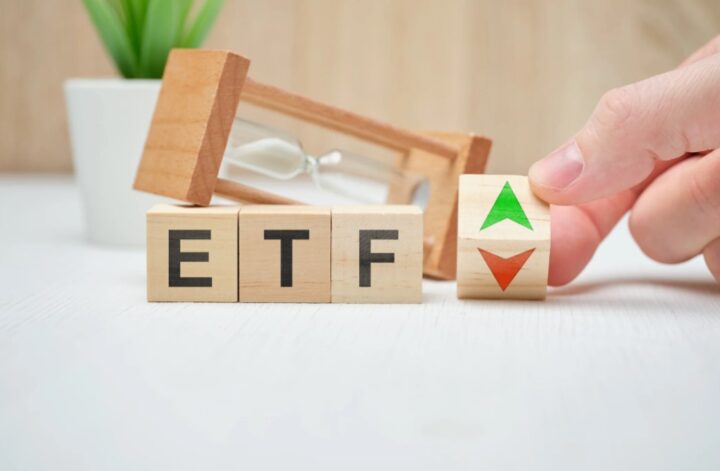As an investor, it’s essential to consider your investments’ impact on society and the environment. There are a variety of exchange-traded funds (ETFs) that provide investors with the opportunity to invest in socially responsible companies.
This guide will discuss what ETFs are, what constitutes a socially responsible ETF, how to find them, how to decide which ones are right for you, and the benefits associated with investing in them.
What Are ETFs?
ETFs are investment vehicles that trade like stocks but offer diversification benefits like mutual funds. They track indices or baskets of assets such as stocks, commodities, bonds, or currencies. ETFs usually come with lower fees than mutual funds and can be bought and sold throughout the day on stock exchanges.
What’s a Social Responsibility ETF?

ETFs (Exchange Traded Funds) tracks a basket of stocks or bonds on a stock exchange, allowing investors to diversify without the cost and time commitment of purchasing individual shares. ETFs have been gaining increasing adoption for years due to their convenience, accessibility, and tax efficiency features. With today’s investors increasingly focusing on adding social responsibility into their portfolios, ETFs have provided an innovative way to integrate the macro-scale political and environmental awareness that people care deeply about.
Socially responsible ETFs focus on investments that support specific initiatives, like clean energy and fossil fuels alternatives, and companies with the highest ethical standards related to corporate responsibility, governance, and diversity. Collective ETF investing is an empowering choice for the savvy modern investor who wants to invest responsibly in companies by balancing substantial returns with social impact.
How Do You Find ETFs That Are Socially Responsible?
There are many resources available online when searching for ETFs that are socially responsible that can help you identify which ETFs meet your social responsibility criteria. These include many websites and financial advisors specializing in socially responsible investing (SRI). It’s also essential to research each fund before investing and be sure you understand its objectives and potential risks before making any decisions.
How To Decide if an ETF Is Right For You?

Before investing in any type of security, including socially responsible ETFs, you must consider your unique financial situation and goals. It is also necessary to understand the fees associated with owning an ETF and any tax implications that may apply based on where you live or where the fund is domiciled. Work closely with a financial advisor who understands SRI principles if you need additional guidance when selecting a fund for your portfolio.
Benefits of Socially Responsible ETFs
If you’re a socially conscious investor, chances are you’ve heard about socially responsible ETFs. ETFs have become increasingly popular in recent years; for a good reason, they offer an easy way to diversify your portfolio and invest in a wide range of assets. But did you know that there are also socially responsible ETFs available? These funds allow investors to support companies that meet specific ethical standards while still achieving their financial goals. Let’s look at some benefits of investing in socially responsible ETFs:
Different Support Causes
Investing in socially responsible ETFs allows you to support causes that are important to you, such as animal welfare, renewable energy, or human rights. You can focus on the reasons that align with your values and use your investments to make an impact.
Diversity

With traditional investments, it can be difficult to diversify your portfolio without taking on significant risk. But with socially responsible ETFs, you can easily invest in different sectors while remaining true to your values. For example, many funds focus on clean energy or sustainable agriculture investments, while others target companies with vital gender diversity initiatives or those dedicated to fighting climate change.
Lower Volatility
Investing in a mix of assets helps reduce the volatility of your portfolio and minimize risk over time. Socially responsible ETFs allow investors to access various purchases across different sectors while considering environmental and social factors.
Tax Advantages
Some socially responsible ETFs qualify for tax-exempt status under certain conditions; any capital gains generated by the fund are exempt from taxation when distributed back to shareholders, although taxes will still apply if sold before. This is an excellent way for investors to maximize their return on investment without worrying about additional taxes eating away at their profits.
Low Expenses
Many socially responsible ETFs have lower expenses than traditional mutual funds because they don’t require active management; this makes them ideal for long-term investments since they don’t eat up returns due to high fees and commissions like other types of investments do over time.
Transparent Reporting

Unlike other types of investment vehicles, many socially responsible ETFs provide detailed quarterly reports regarding their holdings and performance so investors know exactly how their money is being used and what kind of return they can expect over time; this level of transparency is critical when it comes to making informed decisions about where to invest your hard-earned money.
Social Impact
By investing in a socially responsible ETF, you’re helping yourself achieve financial freedom and contributing towards making an impact on society. Your profits could be utilized for various causes which would benefit the local community, environment, or global issues.
Investing in ETFs that are socially responsible – In Conclusion
Investing in socially responsible exchange-traded funds (ETFs) is becoming increasingly popular among investors who want their money aligned with their values without sacrificing returns. It has many benefits, including supporting different causes, diversifying your portfolio, lowering volatility, tax savings, low expenses, transparent reporting, and having a positive social impact.
It would be best if you were well-prepared when it comes time to select an appropriate socially responsible ETF for your investments because it’s an excellent way for investors who want financial success and peace of mind to know their investments are helping create meaningful change worldwide. With this guide as your starting point, consider investing in an SRI fund today if you’re looking for an easy way to get involved in ethical investing without sacrificing potential returns.




